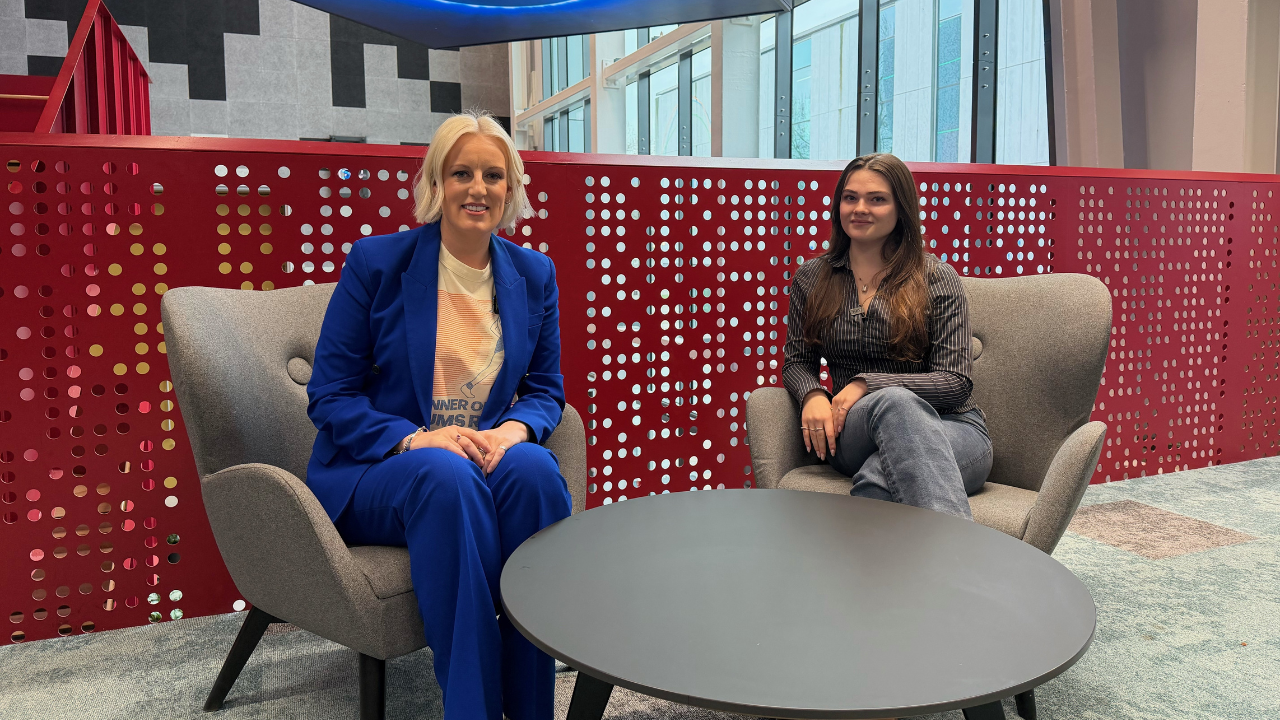
INWED 2025: How can engineering and manufacturing businesses diversify their teams?
Date
22/06/2025
Category
Insights , News
This International Women in Engineering Day, we’re taking a look at how three engineering and manufacturing businesses have successfully used T Level industry placements as a route to recruitment – and to diversifying their teams.
Quantamatic, Lyndhurst Precision Engineering and R&B Switchgear Group have all benefitted from T Level industry placements over the last few years, with each welcoming budding engineers onto their shop floors for meaningful opportunities to build industry-relevant skills.
From the perspective of the employer, T Level industry placements also offer an opportunity to test and shape the skills of future employees, with increasing interest from female T Level students.
What are T Level industry placements, and how can they benefit your business?
Engineering and manufacturing T Levels are a two-year technical qualification that blend classroom learning with a 45-day industry placement. Designed in collaboration with employers, they give businesses the chance to work with driven young people equipped with in-demand technical skills.
As part of her T Level placement, Amber supported Quantamatic’s CAD design work – offering practical skills and a fresh approach to their processes.
“Amber applied the skills she’d learned at college and elevated our core drawings to a new level. She made a huge, tangible difference to the business,” says Quantamatic’s Quality & Regulatory Manager, Francis Wilkinson.
Quantamatic was so impressed with Amber’s work, they’re already taking on their next student. “Amber completely exceeded our expectations and left a legacy on the business that goes well beyond her placement.”
What are the long-term recruitment opportunities of T Levels?
Offering a T Level industry placement is a proven way to find and secure new talent. Many businesses have gone on to offer their T Level students permanent roles once they’ve completed their course – either directly or as part of an apprenticeship.
The placement is like an extended interview; you can test – and shape – the student’s skills to see if they’re a good fit for your business, before committing to an apprenticeship or full-time role.
Over at R&B Switchgear Group, T Level placements have been so successful that five students have been offered permanent apprenticeships.
“They’re keen, enthusiastic and bright. It's really boosted the business, and the people within the existing team as well,” says Gavin Chadwick, Technical & Training Manager.
The company, which employs over 100 skilled professionals, sees T Levels as a key part of its recruitment and succession planning – a strategy to nurture new talent in a specialised and ageing workforce.
How can T Levels help you diversify your teams?
Across all three success stories, one theme stands out: T Levels are helping businesses of all sizes encourage and nurture young female talent. Engineering remains a male-dominated space, but T Levels are beginning to change that.
“In a traditionally male-dominated industry, it’s great to see a pipeline of female talent coming through. This is a fantastic entry point to the business,” says Francis Wilkinson, Quality and Regulatory Manager at Quantamatic.
At Lyndhurst Precision, two of the three students on placement were female.
“I’ve been really heartened by how many young women have been applying. We’d love to encourage more women into engineering and support them to thrive,” says Andy Wilding, Technical Manager at Lyndhurst Precision Engineering.
The case for hosting T Level industry placements is strong:
- T Level students bring technical knowledge and skills ready to apply from day one
- T Level industry placements enable businesses to identify future recruits before committing long-term
- While on placement, students are doing real work - boosting productivity for businesses of all sizes
- T Levels are great way to support the next generation of engineers and manufacturers, and help businesses create a more inclusive and diverse workforce.
“If each company in the industry took on just one student, we could all benefit. It’d be a better picture all round.” Andy Wilding, Lyndhurst Precision Engineering
Discover moreMore news



